Romantics in England: Music for Cello and Piano
The tenet that there is generally a good reason some music is rarely, if ever, performed is one that I hold myself for the most part, although I'm not particularly proud of it. There has always been an appalling attitude amongst certain of the classical 'illuminati' (not that I count myself as part of that crowd) that certain composers should be seen as, at best, 'of their time', and at worst, a bunch of amateurs that weren't fit to lick the feet of 'the greats', let alone have their tunes performed within a mile of say, a Mozart symphony, or a Brahms concerto.
Well, Mozart also wrote hugely uninteresting pieces, and there are times when I've thought Beethoven, Schumann and Tchaikovskly (to name three of many examples), really shouldn't have bothered.
Quite often, the very mention of a composer who is well-known, will send folks into paroxisms of delight, yet those names who were famous contemporaries receive no more than a shrug, or a blank stare. This is a great shame.
It's obvious that Joseph Spooner, and his excellent accompanists, feels the same way. Spooner is, as the CD notes state, "an ardent advocate of neglected repertoire" . This sort of 'crusade' often raises a few eyebrows, as many items trawled up from dusty library shelves for such an exercise should be put back as quickly as possible once it has been inflicted upon the local music society. Much of the music on this CD however, should be of great interest to those who are willing to open their ears and perhaps be very pleasantly surprised that 'Das land ohne musik' (a deliberately derisory comment from the German music critic Oscar Adolf Hermann Schmitz in 1904, but which was used at least 50 years beforehand by other continental visitors) could produce such fascinating pieces, and there's not a work by Arthur Sullivan or Elgar in sight!
Spooner's programme contains works spanning the years from 1861 to 1924, and is entitled 'Romantics in England'. This, however, doesn't necessarily reflect the sounds or cultural influences of each of the pieces on offer, as much of the music doesn't necessarily sound 'English' and not all the composers have particularly English backgrounds.
The first piece is Walter MacFarren's Cello Sonata in E minor, premiered in 1861 (a surprisingly quiet year in classical music history, although Offenbach's 'Orpheus in the Underworld' had its first New York production, and the famous tune to 'Abide with Me' was published - I may carry on with this sort of thing throughout the review).
Its actual title of 'Sonata in E minor for pianoforte and violincello' reflects the almost virtuosic piano part as compared to the far more lyrical cello music. His music is described as 'Mendelssohnian' in the notes, which is understandable, but there seems to be a lot more passion in this work, and would not be out of place in a concert of Brahms chamber works. I was surprised to think that the opening of the third movement sounded like part of the Schumann concerto, which was only premiered the year before (in Leipzig), but could have been mistaken.
The sonata in A Flat by Michael Balfe follows. Written between 1866 - 70 (1870 being the year Die Walküre and Tchaikovsky's 'Romeo and Juliet' were first performed, and in which Balfe died), it wasn't published until after his death, being played initially purely for family entertainment.
Balfe was a hugely prolific composer 'English' composer, who was born in Dublin and came over to London in his teens to study the violin. He was best known for his operas, including 'The Bohemian Girl', and this sonata is full of melodies that wouldn't seem out of place in mid-nineteenth century stage works, with a 'salon' feeling that reflects the intimate surroundings of the homes in which it was first played.
Next comes 'A Reverie', a short piece by Rosalind Ellicott, who is someone I'm willing to admit I had never heard of before (and of whom I have no picture, although there is a very fetching photograph on the back cover of the CD booklet).
Ellicott spent much of her life (before and after studying at the Royal Academy of Music) in the Gloucester area, and became well-known for her singing, and choral compositions for the Three Choirs festival. It's a pity that much of her unpublished music is considered lost, at the moment, and I'm afraid that this work is the most unsatisfying in this programme. A pleasant tune for the cello is accompanied by some very uninteresting piano chords and if it had gone on for much longer, I'm sure I would have been in a reverie of my own.
Published in 1888, a year in which Tchaikovsky produced Sleeping Beauty, the fifth symphony, Strauss composed Don Juan and Mahler opened up his own symphonic cycle, the best I can say of it is that someone should hunt out the rest of her output just in case I start to believe the statement in the opening paragraph.
Things are rescued quite dramatically by Samuel Coleridge-Taylor's Variations in B minor. These were first performed in 1907, a year in which other British composers were coming into their own, with Delius, Elgar, Brian, Holst, and York Bowen (an inexplicably ignored figure) producing fairly major works.
Coleridge-Taylor didn't have the most obvious background for a classical composer, being the illegitimate son of a doctor from Sierra Leone (who apparently never knew he had a son), a white mother, and brought up in Croydon.
His most famous work is obviously the cantata 'Hiawatha's Wedding Feast' (from the larger 'Hiawatha'), but he was particularly well-known in his time for writing several lighter works which could be arranged for different ensembles, and other music that explored African rhythms and melodies, surely making him one of the more adventurous composers around at that time. If it weren't for his untimely death from pneumonia in 1912, he would certainly have been more than a one hit wonder.
The Variations we have here are based on a theme described within the liner notes as 'not particularly preposessing'. This is probably true, but with all themes, it's what you do with it that matters. The most successful variation here is the 'Larghetto' which is a rather beautiful section, leading into a very 'Edwardian' Vivace. Certainly, something which should whet your appetite for investigating more of his music.
The shortest work on the CD is Roger Quilter's 'To Daisies', a transcription made in 1918 of a song written 12 years earlier as part of a cycle entitled 'To Julia' (written the same year as Ives' 'Central Park in the Dark' and Schoenberg's Chamber Symphony No.1).
Quilter was of the more 'privileged' set, being educated at Eton, and also had the chance to study in Germany in the late-nineteenth century. The output of over one hundred songs remain his legacy, but his musical invention, despite remaining utterly tonal, was quite extraordinary. The small example here makes you wish there were many more transcriptions of his songs, and with all honesty, the fifth song of this cycle (of which 'To Daisies' is the third) should also have been added, even if it meant replacing the Ellicott.
The final work on the CD is Edgar Bainton's Cello Sonata, written in just over a month in the second half of 1924.
Outside his music, Bainton was famous for making the mistake of travelling to Bayreuth at the outbreak of the first world war, being arrested as a male enemy alien of military age and locked up for four years. Luckily, he made many musical contacts while imprisoned and so various influences took hold.
This sonata, only recently published in 2008, yet recorded in 1951 with the composer at the piano, is probably the most 'European' of the works on the CD. With a definite French influence, it seems to be bursting at the seams to escape what tonality it has, and I caught a distinct flavour of Tchaikovsky 4 in the second movement (in characteristics rather than melody). The third movement contains the most luscious harmonies of the sonata. It's a work that definitely deserves more outings, and hopefully will have now that it has been published.
The sound of the CD is very good overall, with the cello and piano mixing well, although I got the feeling that some subtle tweaking was being done at times to bring out some of the more interesting lines (for either instrument). Overall though, the sound is very satisfying and has a great range and depth.
And so, back to the opening statement.
The music presented on this CD has previously been heard by very few people, and for the most part, was written just for the ears of those were closest to the composers. Does this necessarily mean that it shouldn't be heard by more?
Judging by the performances here, we have many pieces which should be rightly considered as welcome additions to the mainstream cello/piano repertoire. Joseph Spooner plays with a clear passion for each work, and is accompanied with great sensitivity and skill by both Kathryn Mosley (Macfarren) and Michael Jones. The fact that the music is not necessarily as 'advanced' as that which was being developed on the continent at the same time is irrelevent, as the Macfarren and Bainton works at the very least would sit perfectly well alongside those of their more famous European counterparts.
This is a great retrospective of British music outside the 'usual' musical timelines, and deserves repreated hearings.
Highly recommended.
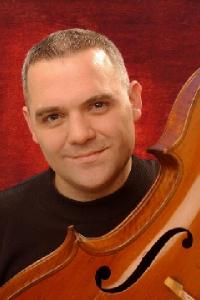
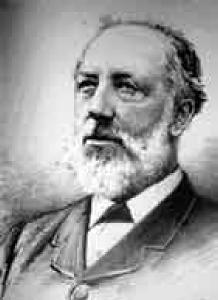
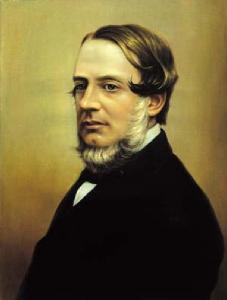
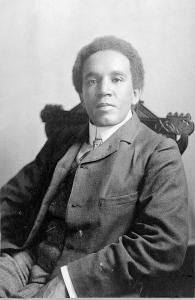
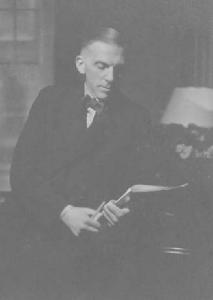
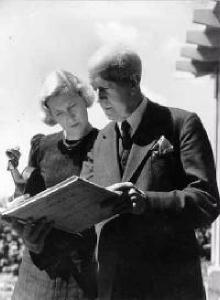
Your Opinions and Comments
Be the first to post a comment!